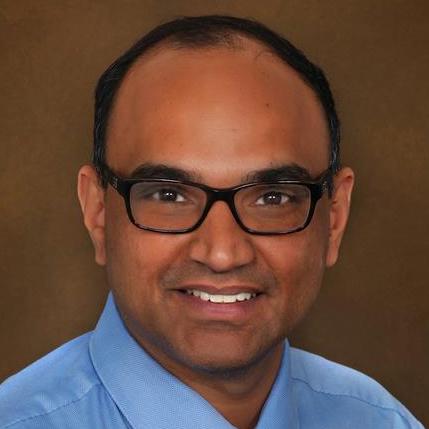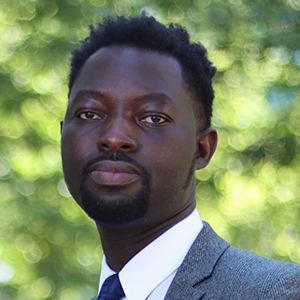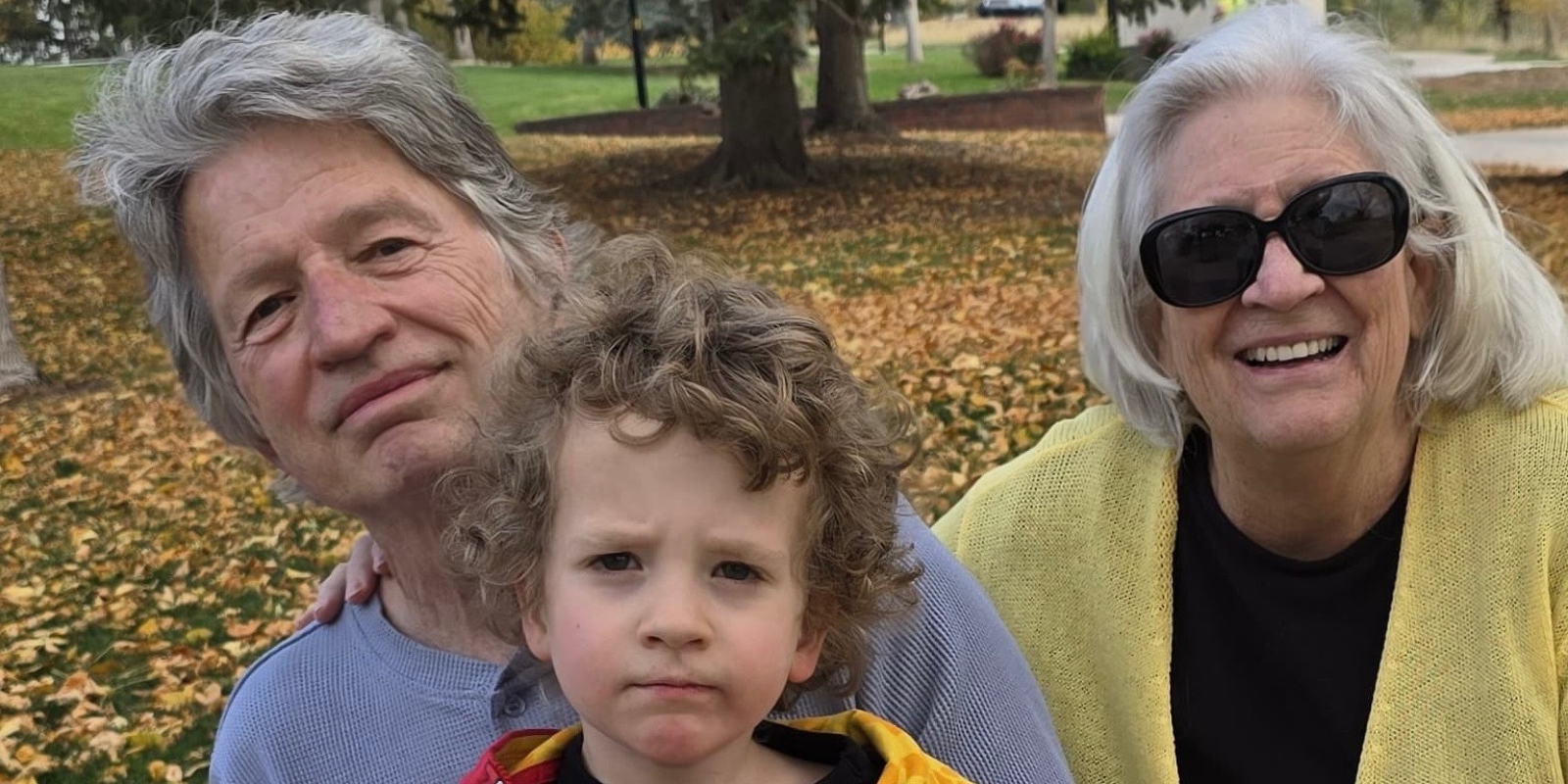Danny Naranjo was still several years from his 40th birthday, but he was increasingly aware of that milestone on the horizon.
His body mass index (BMI) was about 80. He had back pain and struggled with lymphedema. His knees hurt when he had to walk even short distances for his job at Elitch Gardens, and he did it only with a steady stream of Tylenol, ibuprofen, and sometimes tramadol. As 40 approached, he knew these concerns might only get more acute, with new ones possibly joining them. He wanted to change what was beginning to feel like an inevitable future.
In October 2020, at age 36, he had biliopancreatic diversion (BPD), a surgical procedure that makes the stomach smaller and allows food to bypass part of the small intestine so patients absorb fewer calories.
“This surgery is one of the best bariatric surgical procedures we have that can lead to the most robust weight loss,” explains Kweku Hazel, MD, assistant professor of GI, trauma, and endocrine surgery in the University of Colorado Department of Surgery. “We’ve done a lot of public health education to inform people that obesity is a disease, it’s not a choice, and like any disease we need to address it medically.
“Like obesity, bariatric surgery has also been stigmatized, so now we’re framing it as surgical weight loss. It’s not a cosmetic procedure, it’s a vital medical intervention that many studies have shown can have significant impact on chronic disease. I think Danny is a wonderful example of how effective this surgical intervention can be.”
A history of obesity
For as long as he can remember, Danny’s BMI could be classified as overweight or obese. In 7th grade, he weighed 250 pounds, “but I never realized what I was missing,” he says. “I always just worked around my weight. My dad also has obesity and had surgery in the ‘90s, but the options I had were so much better than what he had back then.”
However, even as a teenager and young man in his 20s, Danny felt the physical effects related to obesity, including pain in his joints and decreased mobility. Some days, he felt older than his actual age.
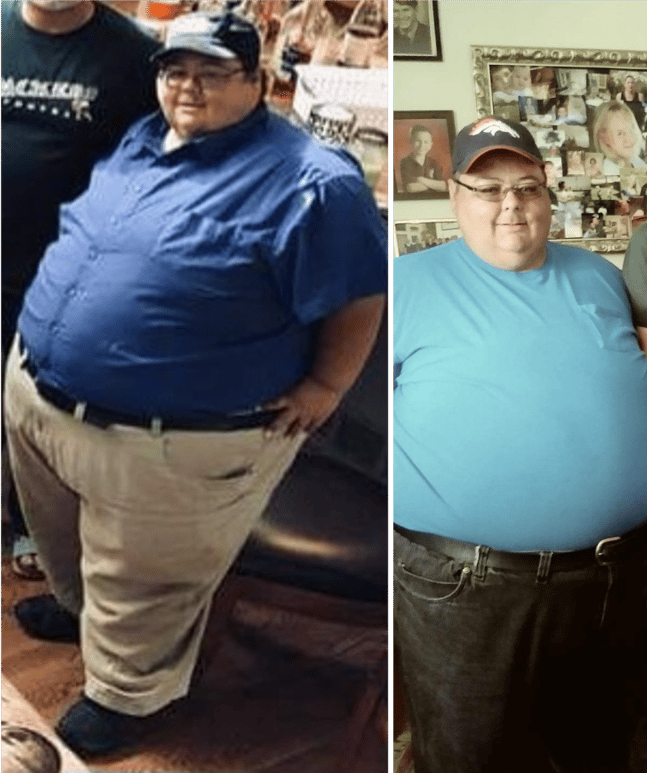
Danny Naranjo in the years before his surgery.
In 2010, he asked his primary care provider about the possibility of bariatric surgery, but his insurance at the time denied coverage. So, as he entered his 30s, Danny continued feeling the effects of obesity. By 2019, he weighed 515 pounds “but it was probably much more. The scales didn’t go that high,” Danny says. “I knew I wanted to get something done.”
In June 2019, he first met with Akshay Chauhan, MD, associate professor of GI, trauma, and endocrine surgery in the CU Department of Surgery who performed Danny’s surgery alongside Jonathan Schoen, MD, program director of bariatric surgery in the CU Department of Surgery.
Not about the number on the scale
“Danny is our model patient that we look to in bariatric surgery,” Chauhan says. “This is a gentleman who is very avid, personality-wise, who is full of enthusiasm and life but was struggling with significant obesity.”
Danny had been dealing with the effects of lymphedema, which caused him to develop ulcers on his legs, and he was working with clinicians at the wound clinic on the same floor as the bariatric surgery team at UCHealth University of Colorado Hospital. Becky Bloedow, a physician assistant at Denver Health, helped Danny make an appointment with the bariatric surgery team and ensure his Medicaid would cover the surgery if he qualified.
“One of the things that inspired me about Danny was the first time I saw him, he did struggle to walk, but in spite of that he refused a wheelchair,” Chauhan recalls. “Those small things go a long way when we’re assessing how a patient is going to do in the post-operative period. Patients who say, ‘I’ve got this, even if it takes me a while to walk a few steps, I’ll do it’ – those little things are so important.”
“I knew I had a lot of weight to lose,” Danny says, “but I remember during that first meeting with Dr. Chauhan, he said something like, ‘If you commit to this, you’ll hit 250 easily, and 200 if you really work for it.’ The whole team emphasized that it wasn’t about the number on the scale, but I think they knew that would be something tangible for me to get my head around.”
The process of preparing for bariatric surgery includes psychological evaluation and working with a dietician to lose 30 pounds before surgery – a means of committing to the lifestyle changes that will happen after surgery.
“The most important checkpoint in this program is the psychologist,” Chauhan says. “These are not simple surgeries. You’re operating on the abdomen, but how is this going to change how the mind works?”
Through transitioning his diet to include many more vegetables and lean meats, Danny lost 30 pounds and scheduled his surgery for April 2020 – the earliest days of the COVID-19 pandemic “so yeah, my surgery got postponed,” Danny says with a laugh. “I ended up having six months of supervised nutrition, and went ahead and lost 30 more pounds.”
He also worked on being more active, step by literal step. At first, he was able to walk maybe halfway up the street, and then it was halfway around the park, and then the half mile to church.
By October 2020, Danny was ready for surgery.
Using robotic technology
One of the most exciting developments in bariatric surgery has been the use of robots. “In the past, we did bariatric surgery with open incision, which is fraught with complications,” Hazel explains. “Then we switched to laparoscopic, which is minimally invasive with minimal incisions, but visibility and maneuverability are still not as robust. The robot gives you way better visualization, you’re able to use multiple arms to get very precise dissections, you’re able to rotate your wrists 360 degrees, and it also eliminates a lot of tremor so you can do very delicate, precise operations.
“Also, these surgeries can take a long time, so you’re able to be sitting and not standing, not bending over, not putting your body in uncomfortable positions to accommodate difficult anatomy.”
Before the surgery, Danny felt extremely nervous – “How could you not?” he says – and remembers sitting in his hospital gown and telling his friend who was waiting with him, “I’d like to go home.”
His surgery ended up being longer than anticipated because the mesh placed during his hernia surgery in 2017 caused complications, but otherwise “he came through extremely well,” Chauhan says.
Steady progress
Recovery wasn’t easy, Danny admits. He woke up from surgery in extreme pain that lasted a few days. Because he was high-risk, Chauhan advised he stay in the hospital for five days. In that time, he transitioned from IV fluids to clear liquids and sugar-free drinks to broths.
Working with a nutritionist on the bariatric surgical team, Danny created simple meal plans and four weeks after surgery began eating solid food. He learned to chew a lot more – sometimes it felt like he was chewing constantly – and learned, most importantly, to listen to his body.
Danny also learned which protein shakes were good and which weren’t, because his meal plans called for 90 grams of protein per day. “It’s interesting how your tastebuds change,” he says. “Bratwurst and steaks used to be my favorites, but they taste different to me now.”
He joined a men’s bariatric surgery support group, and one of the group’s members compiled a cookbook of recipes that Danny deems amazing. And he continued walking, now miles at a time.
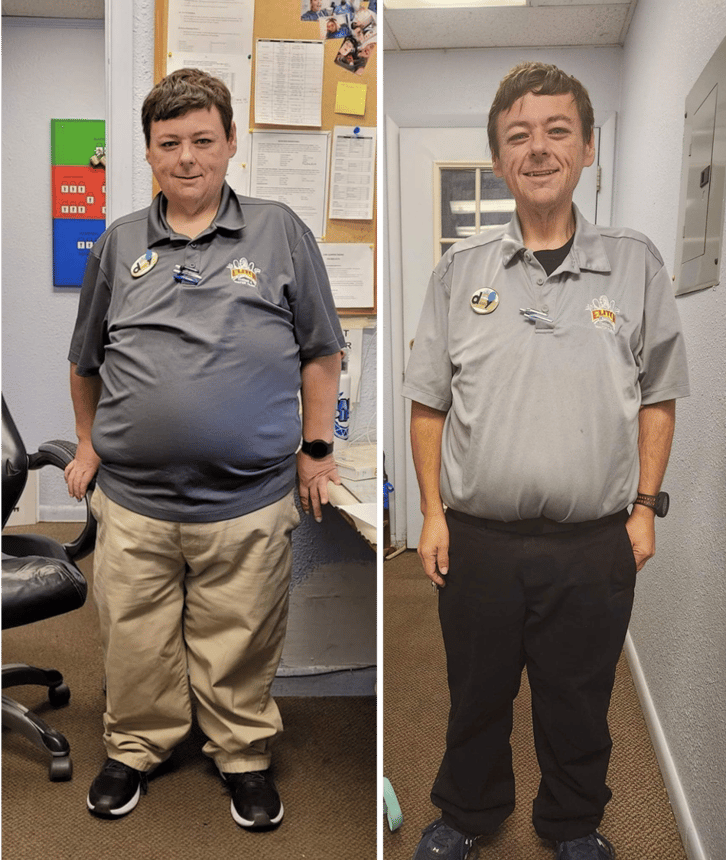
Danny Naranjo at work at Elitch Gardens in the months following his surgery.
On the bariatric surgery app he downloaded, the graph charting his weight dropped straight down. Where once he bought 70-inch-waist pants, he now was buying 64-inch, then 58. Several months after his surgery, he went to Walmart to buy a pair of pants, something he hadn’t been able to do for a long time.
Now, he buys 36-inch-waist pants and weighs what he did in elementary school – 180 pounds.
“It feels like flying”
This hasn’t been just a physical journey, though. “I do get treated differently,” Danny says. “Now I’m turning down jobs that I wouldn’t be offered before. I don’t let it bother me, but I do notice it. And you have to wonder, are you being treated differently because of your size, or because you’re more confident?”
Hazel emphasizes that bariatric surgery isn’t tantamount to waving a magic wand. “Behavioral and lifestyle risk factors are going to be there the rest of your life, and there’s going to be a constant level of diligence and lifestyle changes and management that are necessary to prevent the disease of obesity from rearing its head again.”
Two and a half years into his journey, Danny acknowledges it’s a day-by-day process. He weathered the mood swings that came with hormonal adjustments, he incorporated the vitamins and supplements, he developed a deep appreciation for leftovers.
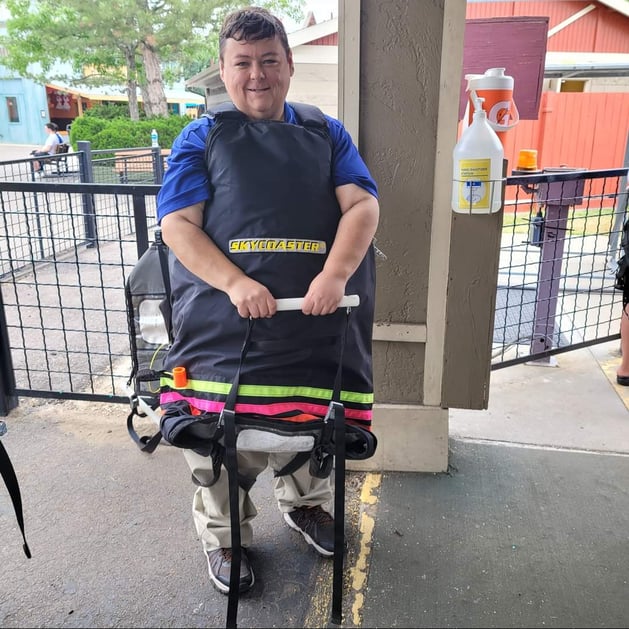
Danny Naranjo preparing to ride the XLR8R at Elitch Gardens.
And he braved the XLR8R, a ride at Elitch Gardens that combines bungee jumping, hang gliding, and sky diving. “I never could do it before and now it’s my favorite thing,” he says. “It feels like flying.”


